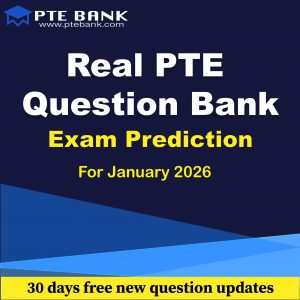Here are Top 3 frequently asked Summarize Written Text questions in recent PTE Academic test (September 2020).
1.Small War
In such an environment, warfare is no longer purely directed against the military potential of adversarial states. It is rather directed at infiltrating all areas of their societies and to threaten their existences. The comparatively easy access to weapons of mass destruction, in particular relatively low-cost biological ages of key concern. Both governmental and non-governmental actors prefer to use force in a way that can be characterized as “unconventional” or also as “small wars.” War waged according to conventions is an interstate phenomenon. The “small war” is the archetype of war, in which the protagonists acknowledge no rules and permanently try to violate what conventions do exist. The protagonists of the “small war” observe neither international standards nor antis control agreements. They make use of territories where they do not have to fear any sanctions because there is no functioning state to assume charge of such sanctions or bemuse the state in question is too weak to impose such sanctions. This type of war does not provide for any warning time. It challenges not only the external security of the nation states and inter-national community, but also their internal safety.
2.The World Wide Web
Tim Berners-Lee believes the internet can foster human understanding and even world peace.
He is the man who has changed the world more than anyone else in the past hundred years. Sir Tim Berners-Lee may be a mild-mannered academic who lives modestly in Boston, but as the inventor of the world wide web, he is also a revolutionary. Along with Galileo, William Caxton and Sir Isaac Newton, he is a scientist who has altered the way people think as well as the way they live.
Since the web went global 20 years ago, the way we shop, listen to music and communicate has been transformed. There are implications for politics, literature, economics even terrorism because an individual can now have the same access to information as the elite. Society will never be the same.
The computer scientist from Oxford, who built his own computer from a television screen and spare parts after he was banned from one of the university computers, is a cultural guru as much as a technological one.
It is amazing how far we’ve come, he says. But you’re always wondering what’s the next crazy idea, and working to make sure the web stays one web and that the internet stays open. There isn’t much time to sit back and reflect.
He invented the web, he says, because he was frustrated that he couldn’t find all the information he wanted in one place. It was an imaginary concept that he realized.
3.Books and Television
To understand the final reason why the news marketplace of ideas dominated by television is so different form the one that emerged in the world dominated by the printing press, it is important to distinguish the quality of vividness experienced by television viewers from the “vividness” experienced by readers. I believe that the vividness experienced in the reading of words is automatically modulated by the constant activation of the reasoning centres of the brain that are used in the process of cocreating the representation of reality the author has intended. By contrast, the visceral vividness portrayed on television has the capacity to trigger instinctual responses similar to those triggered by reality itself – and without being modulated by logic, reason, and reflective thought.
The simulation of reality accomplished in the television medium is so astonishingly vivid and compelling compared with the representations of reality conveyed by printed words that it signifies much more than an incremental change in the way people consume information. Books also convey compelling and vivid representation of reality, of course. But the reader actively participates in the conjuring of the reality the book’s author is attempting to depict. Moreover, the parts of the human brain that are central to the reasoning process are continually activated by the very act of reading printed words: Words are composed of abstract symbols – letters – that have no intrinsic meaning themselves until they are strung together into recognizable sequences.
Television, by contrast, present to its viewers a much more fully formed representation of reality – without requiring the creative collaboration that words have always demanded.
More Real PTE Questions for September 2020?
Get start with signing up with PTE BANK!
Step 1: Register an account
Step 2: Choose your perfect PTE Exam Package
Step 3: Go to “My Account”, click on “download” to get PTE preparation materials
PTE exam question bank for January 2026
Latest PTE exam question bank Are you planning to take…




